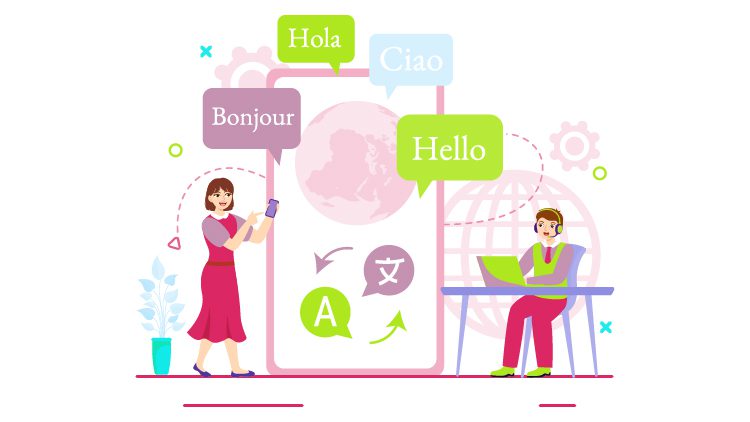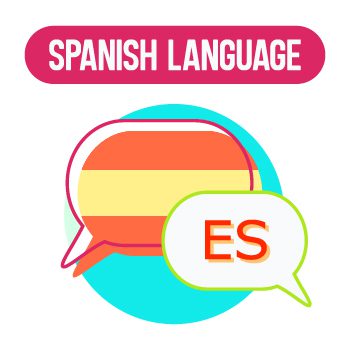
Why Quality Assurance is Crucial for Accurate Spanish Translator Services?
The importance of accurate Spanish translator services
Accurate Spanish translator services are of utmost importance for businesses and organizations that need to communicate effectively with Spanish-speaking audiences. In a globalized world, where language barriers can hinder communication and limit business opportunities, accurate translation plays a vital role. Accuracy is crucial to ensure the message is understood correctly, whether it’s translating official documents, websites, marketing materials, or customer support content.
Without accurate translation, miscommunications and misunderstandings can arise, potentially damaging relationships and reputations. Inaccurate translations can lead to confusion, incorrect information, and even legal issues. It is essential to convey the intended message accurately while maintaining cultural nuances and context.
Accurate Spanish translator services also help businesses reach a wider audience and expand their market share. By providing accurate translations, companies can establish trust, connect with potential customers, and enhance their brand image. This can lead to increased customer loyalty and greater growth opportunities.
Investing in accurate Spanish translator services through professional translation agencies or tools is a smart business move. It ensures precise and effective communication, eliminates language barriers, and allows businesses to tap into new markets. With accurate translation, businesses can confidently connect with their Spanish-speaking audience and achieve their goals.


The challenges of Spanish translation
Translating from English to Spanish or vice versa can be a challenging task due to the unique characteristics of the Spanish language. One of the main challenges is capturing the nuances and cultural references that may not have an exact equivalent in the target language. The translator must find creative ways to convey the same meaning while staying true to the original intent. Additionally, Spanish has different regional variations and dialects, which can make the translation process even more complex.
Another challenge in Spanish translation is the use of idiomatic expressions and colloquialisms. These phrases often have a literal translation that may not make sense in the target language. The translator must understand the context and find an appropriate equivalent that conveys the intended meaning.
Grammar and syntax differences between English and Spanish can also pose challenges. Spanish has different verb conjugations, word orders, and grammatical rules. Translators must deeply understand both languages to ensure accurate and grammatically correct translations.
Furthermore, Spanish translation software and tools may not always be reliable in capturing the subtleties of the language. Machine translation can provide instant translations, but it may not always be accurate or produce coherent sentences. Human translators with a thorough understanding of the English and Spanish languages are essential for overcoming these challenges and providing accurate translations.
Overall, the challenges of Spanish translation require translators to have a deep understanding of both languages and cultures and the ability to adapt and find creative solutions. Investing in quality assurance processes and relying on experienced translators or professional translation agencies is essential to ensure accurate and culturally appropriate translations.
The role of quality assurance in translation
Accurate Spanish translator services rely heavily on quality assurance to ensure the accuracy and effectiveness of translations. Quality assurance plays a crucial role in the translation process by providing that the translations are error-free, properly formatted, and stylistically sound. It involves proofreading and editing to eliminate any mistakes or inconsistencies. Quality assurance also involves using automated tools to check for spelling, grammar, and other language nuances.
This helps to ensure that the translations are of the highest quality and meet the target audience’s needs. In addition, experienced linguists are often involved in the quality assurance process, reviewing the translation and making any necessary changes to ensure accuracy. By implementing quality assurance measures, companies and organizations can have confidence in the accuracy and professionalism of their Spanish translations.


The benefits of using a professional translation agency
Using a professional translation agency for accurate Spanish translator services offers numerous benefits. First and foremost, these agencies have a team of experienced translators who are fluent in both English and Spanish and have a deep understanding of the cultural nuances of both languages. This ensures that translations are accurate and culturally appropriate, avoiding potential misunderstandings or offensive language.
Another benefit is the assurance of high-quality translations. Professional translation agencies have quality assurance processes in place to review and edit translations before delivering them to clients. This helps to eliminate any errors, inconsistencies, or grammatical mistakes, ensuring that the final translation is of the highest quality.
Moreover, professional translation agencies offer a wide range of services, including document translation, website translation, audio translation, and more. This means businesses can rely on a single agency for all their translation needs, saving time and effort.
Furthermore, professional translation agencies often use advanced translation tools and technologies, such as translation memory software, which can improve efficiency and consistency across translations. These tools help to maintain consistency in terminology and ensure that translations are accurate and in line with the client’s brand voice.
Businesses can benefit from accurate and high-quality translations, cultural sensitivity, a wide range of services, and advanced translation tools by using a professional translation agency. This allows them to effectively communicate with their Spanish-speaking audience and expand their reach in new markets.
Examples of quality assurance processes in translation
Quality assurance is a critical component of accurate Spanish translator services. To ensure the highest quality translations, several processes can be implemented. One example is using a translation memory system, which stores previously translated segments to ensure consistency and avoid duplicating effort. Another example is the review process, where a second translator or editor carefully examines the translation to catch any errors or inconsistencies.
A Spanish translation tool, such as an online translator or software, can also help check for accuracy and grammatical correctness. These tools can provide a quick translation option, but they should constantly be reviewed and edited by a professional translator to ensure accuracy.
Lastly, incorporating feedback from the client or end users is another important quality assurance process. This feedback can help identify any areas that may need improvement or adjustment. By implementing these quality assurance processes, businesses can be confident in the accuracy and effectiveness of their Spanish translations.
Advanced Spanish Translation Tools
Online translation services, powered by automatic translation algorithms, have revolutionized the way we communicate across borders, especially in Spanish-speaking countries where language diversity is prevalent. While tools like Google Translate provide instant translations through artificial intelligence, they often lack the precision and nuance of human translation. However, advancements in technology have led to the development of more sophisticated online translation tools, including document translators, that incorporate real-time, reliable automatic translation with additional features such as Spanish dictionaries and mobile apps. These platforms cater to the needs of Spanish speakers worldwide, offering unlimited text translation and ensuring translation quality even for sensitive content and legal documents. Whether it’s conjugating a Spanish verb or translating entire documents, online translation services, with their automatic translation capabilities, have become indispensable for individuals and businesses alike. They facilitate seamless communication across languages and cultures while streamlining translation projects with efficiency and accuracy.
Role of CAT Tools in Spanish Translation
Computer-Assisted Translation (CAT) tools are indispensable in modern translation workflows, particularly for Spanish document translation. These tools help streamline the translation process by storing previously translated segments, which can be reused, ensuring consistency and efficiency. For a translation company, leveraging CAT tools can significantly reduce turnaround times and improve the accuracy of translations by minimizing human error. This is particularly crucial when dealing with language pairs like English and Spanish, where maintaining consistent terminology across various documents is essential.
CAT tools also support translators in managing complex projects by providing features such as terminology databases, translation memories, and quality assurance checks. These tools are especially beneficial for subject matter experts who need to translate specialized content accurately. By integrating CAT tools into their workflow, professional translation services can offer higher quality translations that meet the specific needs of their clients, whether they require legal, technical, or marketing materials translated.
Importance of Native Language Translators
Employing translators who are native speakers of the target language is crucial for delivering high-quality translations. Native language translators bring an innate understanding of cultural nuances, idiomatic expressions, and the subtleties of the language that non-native speakers might miss. This is particularly important for Spanish document translation, where regional variations and dialects can significantly impact the translation’s accuracy and appropriateness. A translation company that prioritizes native language translators can ensure that their translations resonate more deeply with the target audience.
Moreover, native language translators are better equipped to handle the stylistic and contextual demands of different types of content. For example, when translating marketing materials from English to Spanish, a native Spanish speaker can better capture the tone and style that will appeal to Spanish-speaking consumers. This also applies to official language translations where precision and adherence to formal language standards are paramount. By employing native speakers, professional translation services can deliver translations that are not only accurate but also culturally relevant and engaging.
How to ensure quality assurance when choosing a translator or agency
Selecting a translator or agency for accurate Spanish translator services is a crucial decision that requires careful consideration. To provide quality assurance in your translations, several factors must be remembered.
Firstly, choosing a translator or agency with expertise in English and Spanish is essential. Look for professionals who are native speakers or have a high level of fluency in both languages. This ensures they deeply understand both languages’ nuances, cultural references, and idiomatic expressions.
Secondly, consider their experience and track record in providing accurate translations. Look for testimonials, reviews, or case studies that showcase their expertise and the quality of their translations. A translator or agency with a proven track record of delivering accurate and high-quality translations is more likely to provide reliable services.
Additionally, consider their quality assurance processes. Ask about their proofreading and editing practices and the use of automated tools to ensure accuracy. A translator or agency with robust quality assurance measures is more likely to deliver accurate, error-free translations.
Finally, consider their responsiveness and communication. Clear and timely communication is essential to understand and execute your translation requests accurately. A translator or agency that is responsive to your queries and provides transparent communication throughout the translation process is more likely to deliver reliable and accurate translations.
By considering these factors and ensuring that your chosen translator or agency has the necessary expertise, experience, quality assurance processes, and effective communication, you can have confidence in the accuracy and quality of your Spanish translations.
Read more about getting a Spanish legal translation.
Developing a Comprehensive Style Guide
A comprehensive style guide is essential for maintaining consistency and quality across all translations within a translation company. This guide should outline specific preferences for grammar, punctuation, tone, and terminology, tailored to the client’s needs and the target language. For instance, in English to Spanish translation, the style guide should address differences in formality levels, regional language preferences, and appropriate terminology for different subject matters. A well-crafted style guide can significantly enhance the quality of Spanish document translation by providing translators with clear guidelines to follow.
Furthermore, a style guide is particularly valuable when dealing with multiple European languages, as it helps ensure consistency across different language pairs. It serves as a reference point for translators and editors, reducing discrepancies and improving the overall quality of the translation. In professional translation services, a style guide is a critical tool for quality assurance, helping to maintain a consistent voice and style across all translated materials. This consistency is vital for building trust and credibility with the target audience, whether the translations are for marketing, legal, or technical content.
Achieving Excellence in Translation Services
Maintaining high-quality standards in translation services necessitates rigorous quality control and robust quality management systems. Translating from the source language requires meeting specific quality requirements to ensure the product quality and the overall quality of products. This focus on quality significantly enhances customer experiences. Utilizing online translators and neural networks helps achieve accuracy and efficiency. Project managers play a crucial role in overseeing statistical process controls to ensure customer satisfaction by meeting customer requirements. Through these efforts, translation services consistently deliver excellence in every project.
Meeting international standards in translation services involves setting clear quality objectives and conducting thorough quality checks to exceed customer expectations. Expert translators and neural machine translations work together to maintain high quality levels and address quality issues in both common and foreign languages. Adhering to regulatory requirements, especially in the United States, ensures compliance and reliability. Incorporating customer feedback into the testing process, including failure testing, helps refine software quality. This continuous improvement guarantees that the translation services provided are of the highest standard.
Frequently Asked Questions
What is quality assurance in Spanish translation services?
Quality assurance in Spanish translation services refers to the systematic process of ensuring that the translations are accurate, linguistically and culturally appropriate, and error-free before they are delivered to the client.
Why is quality assurance necessary in Spanish translation?
Quality assurance is vital because it guarantees that the translated content accurately conveys the intended message, maintains the original tone and style, and avoids errors that could lead to misunderstandings or misinterpretations.
What are the risks of not implementing quality assurance in Spanish translation?
Without quality assurance, there’s a higher risk of inaccuracies, cultural insensitivity, and language errors in translations. This can damage your brand’s reputation and lead to misunderstandings in communication.
How does quality assurance impact the accuracy of Spanish translations?
Quality assurance involves proofreading, editing, and reviewing translations by experienced linguists. This process ensures correct grammar, syntax, and terminology, resulting in accurate translations.
How do online translation services improve cross-border communication, particularly in Spanish-speaking countries?
Online translation services, utilizing advanced technologies such as automatic translation algorithms, have revolutionized cross-border communication by providing instant translations. In Spanish-speaking countries where language diversity is prevalent, these tools bridge linguistic gaps, enabling seamless communication across borders.
